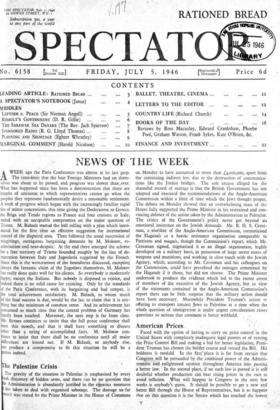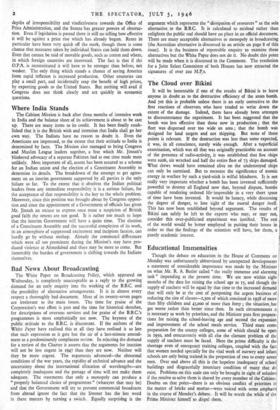American Prices
Faced with the option of having to carry on price control in the United States with completely inadequate legal powers or of vetoing the Price Control Bill and making a bid for better legislation, Presi- dent Truman has chosen the bolder course and vetoed the Bill. His boldness is twofold. In the first place it is far from certain that Congress will be persuaded by the combined power of the Admini- stration and enlightened opinion throughout America into passing a better law. In the second place, if no such law is passed it is still doubtful whether production can beat rising prices in the race to avoid inflation. What will hapEen in Congress in the next few weeks is anybody's guess. It should be possible to get a new and better Bill through the House of Representatives, but it so happens that on this question it is the Senate which has touched the lowest depths of irresponsibility and vindictiveness towards the Office of Price Administration, and the Senate has greater powers of obstruc- tion. Even if legislation is passed there is still no telling how effective it will be against a price rise which has already begun. Rents in particular have been very quick off the mark, though there is some chance that measures taken by individual States can hold them down. Even that cannot be said of movable goods, such as cotton and wheat, in which foreign countries are interested. The fact is that if the O.P.A. is reconstituted it will have to be stronger than before, not weaker. The only thing which stands a chance of saving America from rapid inflation is increased production. Other countries can play a small part, and incidentally reap the benefit of high prices, by exporting goods to the United States. But nothing will avail if Congress does not think clearly and act quickly in economic questions.



























 Previous page
Previous page